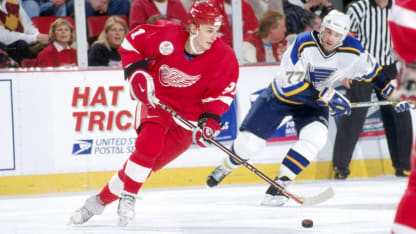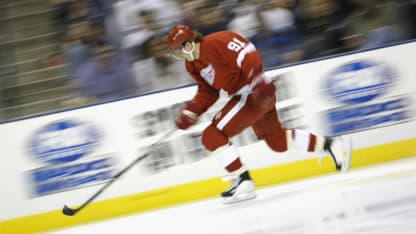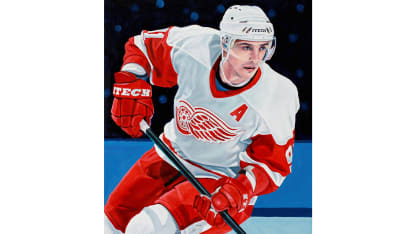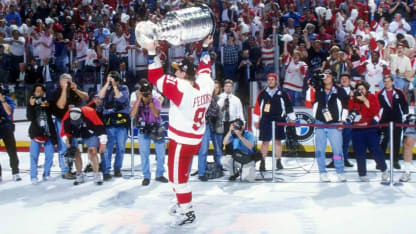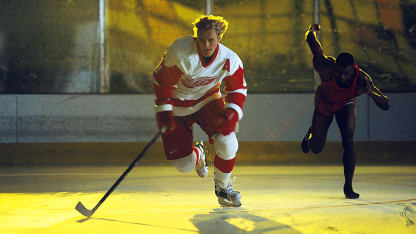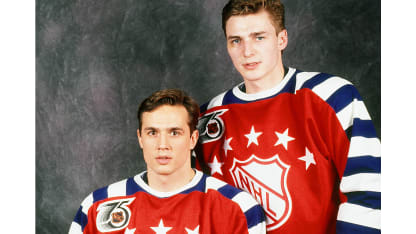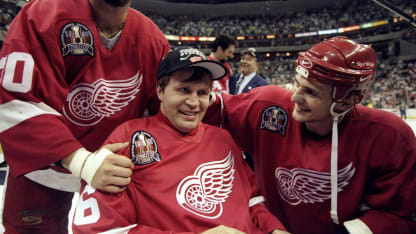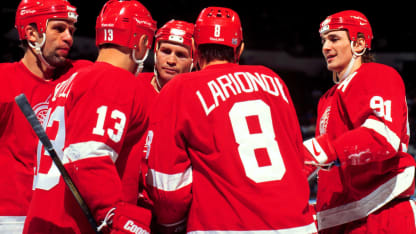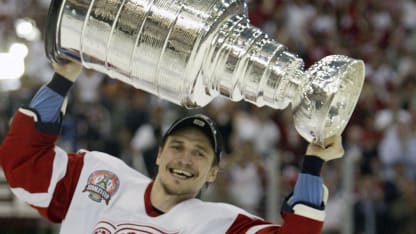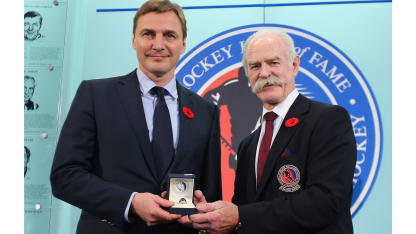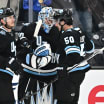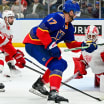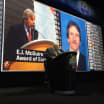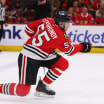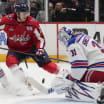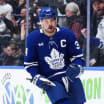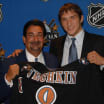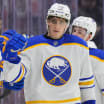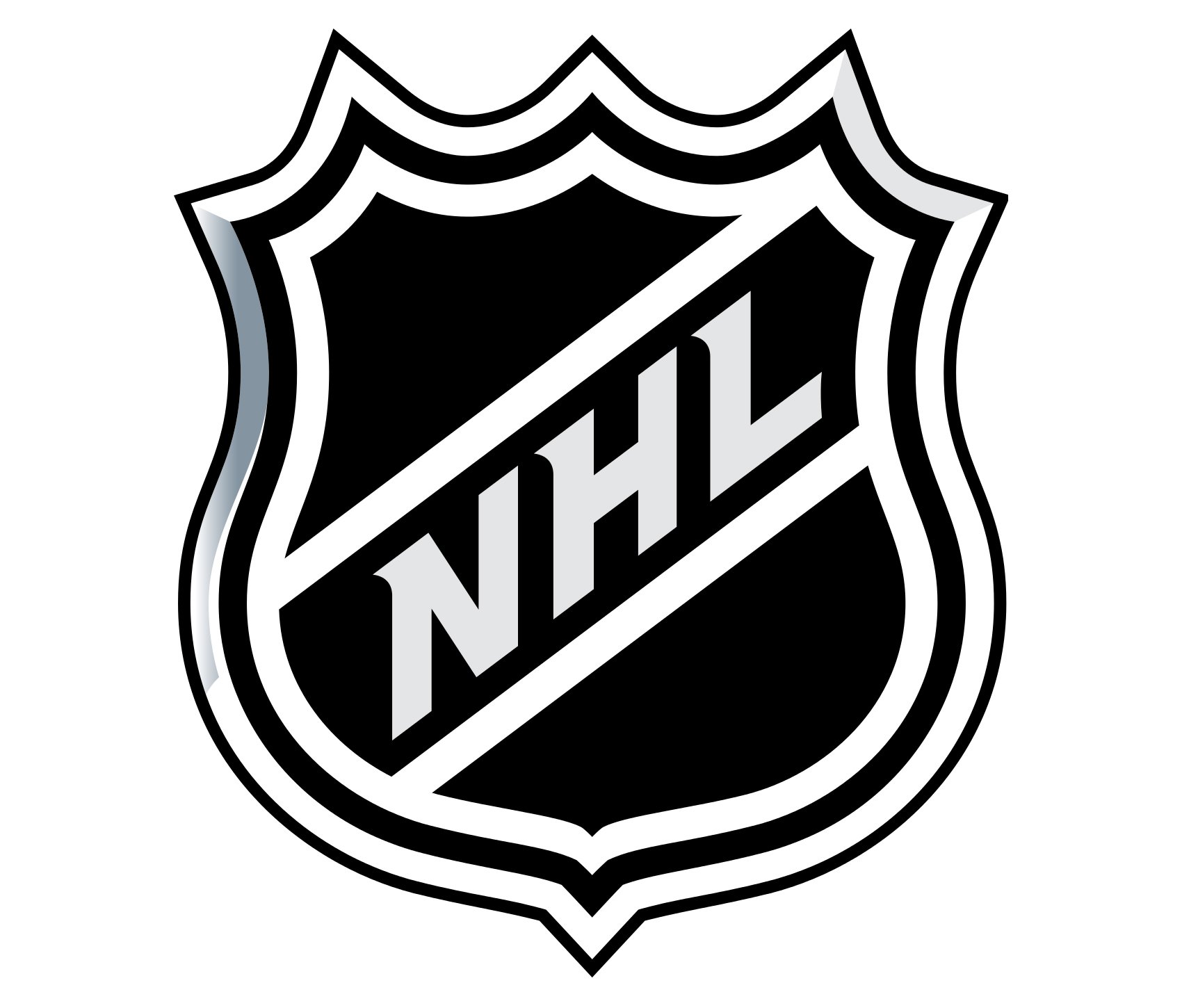Fedorov was born Dec. 13, 1969, in Pskov, a small city in southwest Russia. Viktor Fedorov put Sergei on skates at three. At nine, the family moved to Apatity, a smaller town inside the Arctic Circle where the long, frigid winters assisted Viktor in training his son. Sergei could spend up to seven hours a day skating on a local river, his mother Natalia bringing food to maximize his ice time. It sometimes grew so cold he could only skate 10 minutes at a time. He'd huddle by bonfires along the shore for 20 minutes and then go out again.
He'd also practice and scrimmage with his father's team.
"I was amazed that the men would pass the puck back to me," Fedorov told author Chris McDonnel in "For the Love of the Game." "That gave me so much confidence."
Soviet hockey officials began scouting him at 13. He moved to Minsk before he turned 16 to play in the Soviet league's second division for one season, then moved to Moscow in 1986 to be mentored by Viktor Tikhonov at CSKA, the Red Army Team. Selected to the Soviet national junior squad, Fedorov was named to the 1988 World Junior Championship All-Tournament Team after the Soviet Union won a silver medal. They won gold the next year, with Fedorov and his wings, Alex Mogilny and Pavel Bure, among the top scorers.
Meanwhile, the Red Wings were rebuilding and weighed drafting Fedorov. They considered him the world's top 18-year-old, but understood Soviet picks might end up wasted picks. GM Jim Devellano was willing to take the risk. Over the next year, the Red Wings quietly persuaded Fedorov to defect, which he did in the summer of 1990 when the Soviet national team played in Portland. Arriving in Detroit, he selected jersey number 91, the reverse of Yzerman's 19.
